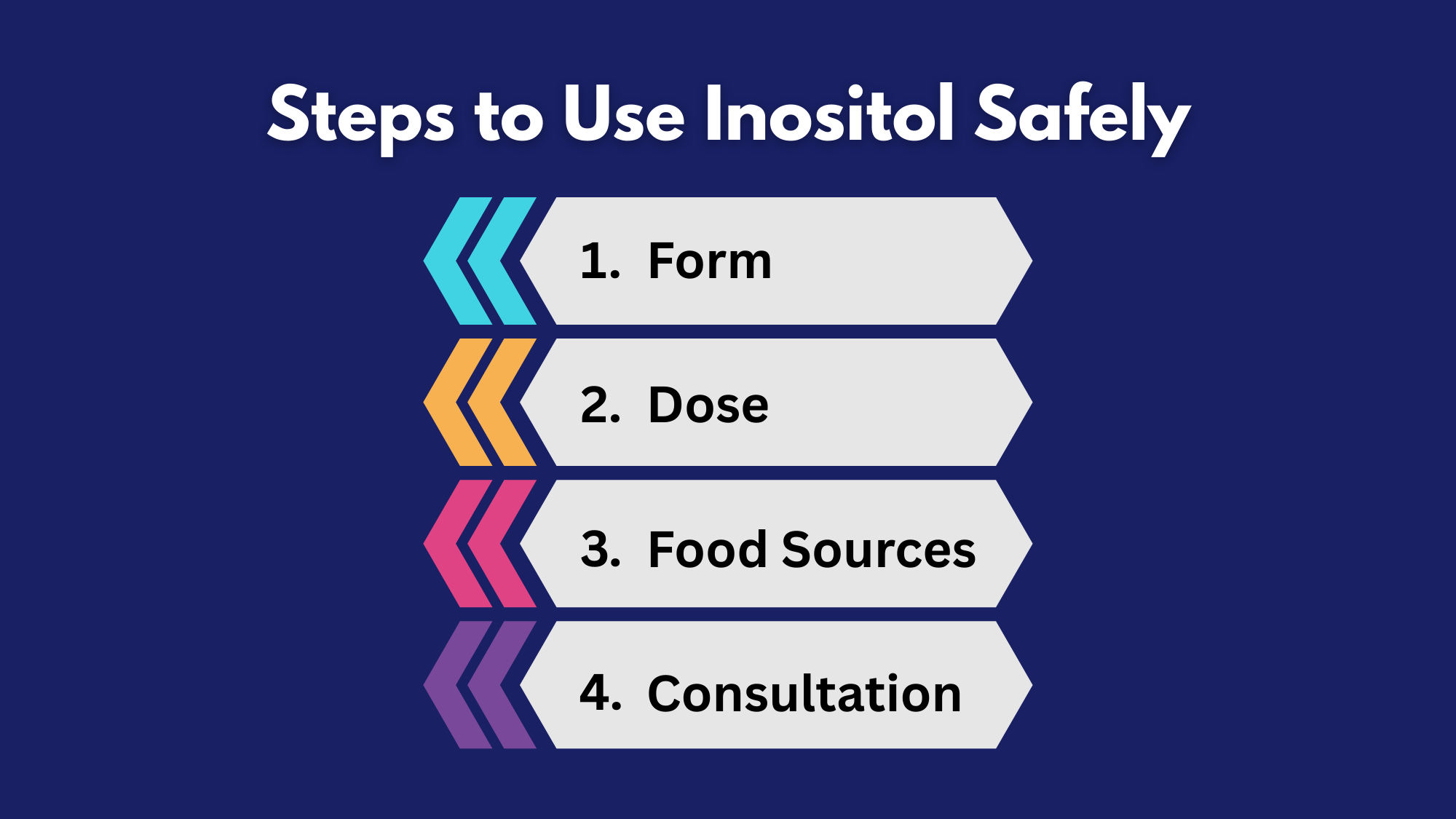Struggling with hair thinning or looking for natural ways to support stronger hair growth?
Inositol, particularly myo-inositol, might be the solution you’ve been searching for.
Research reveals that inositol benefits for hair include optimizing cellular functions and balancing hormones, creating the ideal environment for hair follicles to thrive.
Beyond hair benefits, studies suggest it supports mental wellness, blood sugar control, and reproductive health, making it a versatile supplement worth understanding.
What is Inositol?
Inositol is a naturally occurring sugar alcohol that plays essential roles in human physiology. The body produces this vital compound internally, while dietary sources include fruits, beans, grains, and nuts.
Among the nine different forms of inositol, two are particularly important for human health: myo-inositol and D-chiro-inositol.
Myo-inositol represents the most abundant form found in the body and serves as the primary active compound in most research studies.
These two forms work synergistically and can convert into each other as needed. Both support critical cellular functions, including cell signaling, membrane integrity, and metabolic processes that influence everything from hormone regulation to neurotransmitter activity.
Disclaimer: Consult a healthcare professional before using inositol, especially if you are pregnant, breastfeeding, taking medications, or have existing health conditions, as interactions may occur.
How Inositol Works in the Body?
This essential nutrient operates through multiple biochemical pathways, supporting various physiological functions at the cellular level.
1. Cell Communication: Acts as a secondary messenger, relaying signals inside cells. Facilitates communication between cell membrane receptors and internal cellular processes, enabling proper cellular responses to external stimuli and hormones.
2. Insulin Response: Supports cellular response to insulin, impacting glucose metabolism. Enhances insulin receptor sensitivity and glucose uptake by cells, helping maintain stable blood sugar levels and improving metabolic efficiency.
3. Brain Chemistry: Participates in neurotransmitter function, influencing mood regulation. Supports serotonin receptor activity and helps maintain optimal levels of key neurotransmitters that control mood, anxiety, and cognitive function.
4. Hormonal Balance: Involved in reproductive hormone regulation. Influences ovarian function and helps normalize testosterone, luteinizing hormone, and follicle-stimulating hormone levels, particularly beneficial for women with hormonal imbalances.
5. Membrane Health: Maintains cell membrane integrity. Forms essential phospholipid components that keep cell membranes flexible and functional, ensuring proper nutrient transport and cellular protection from environmental damage.
6. Fat Processing: Helps metabolize fats within organs. Prevents fatty buildup in liver and other organs by promoting efficient lipid metabolism and supporting the body’s natural fat-burning processes.
Inositol Benefits for Hair
Recent research connects inositol to better hair health because it helps cells work properly and keeps hormones in balance, which are both important for healthy hair growth.
| Mechanism | Role in Hair Growth |
|---|---|
| Follicle Nourishment | Enhances nutrient delivery to hair follicles, supporting normal growth cycles. |
| Hormone Regulation | Balances hormones that affect hair growth patterns (notably relevant for androgen levels). |
| Cellular Health | Aids metabolic activity within hair follicles, supporting growth. |
| Insulin Balance | Improves sensitivity, reducing follicle inflammation and supporting optimal conditions for growth. |
PCOS-Related Hair Loss Benefits
The inositol benefits for hair are particularly evident for women experiencing hair loss due to PCOS, as it offers targeted support by addressing the underlying hormonal imbalances that contribute to this common condition.
1. Addresses Root Cause: PCOS frequently triggers hair thinning through elevated androgen levels, which disrupt normal hair growth cycles and lead to progressive hair loss. By targeting these underlying hormonal imbalances, inositol works at the source of the problem rather than just masking symptoms, providing a more comprehensive approach to hair restoration.
2. Hormone Regulation: Inositol helps rebalance hormone levels in women with PCOS, specifically targeting the excess androgens responsible for hair thinning and loss. This natural supplement supports the body’s ability to regulate insulin sensitivity and reproductive hormones, creating a more favorable environment for healthy hair growth and reducing further damage.
3. Gradual Hair Improvement: With consistent use over several months, women with PCOS may notice improved hair density and thickness as hormone levels stabilize over time. Results typically become visible after 3-6 months of regular supplementation, with continued improvement as the body maintains better hormonal balance and hair follicles recover from previous damage.
Health Benefits of Inositol Beyond Hair

While inositol is gaining recognition for its potential in supporting hair health, research has revealed its therapeutic applications extend across multiple body systems and health conditions.
1. Mental Wellness
Clinical data suggest that inositol may assist in reducing symptoms of anxiety and depression when used as an adjunct to standard treatments. Studies indicate doses of 12-18 grams daily can help improve mood disorders by supporting serotonin receptor function.
However, it should complement, not replace, professional mental health care and prescribed medications.
2. Bipolar Disorder
Inositol may offer mild benefits in reducing depressive episodes for bipolar disorder when combined with prescribed treatment. Research shows it can help stabilize mood swings during depressive phases, though effects on manic episodes remain unclear.
Patients should work closely with healthcare providers to monitor interactions with mood stabilizers and other psychiatric medications.
3. Blood Sugar Control
Improves insulin sensitivity, showing benefits in glycemic control. Clinical trials demonstrate that inositol supplementation can reduce fasting glucose levels and improve glucose tolerance tests.
This makes it particularly valuable for individuals with prediabetes or type 2 diabetes, as it enhances the body’s ability to process sugar more efficiently.
4. Metabolic Syndrome
May lower blood pressure, improve cholesterol, and reduce abdominal fat. Studies show inositol can decrease triglyceride levels, increase HDL cholesterol, and reduce waist circumference measurements.
These cardiovascular benefits occur through improved insulin sensitivity and enhanced fat metabolism, contributing to overall metabolic health and reduced disease risk factors.
5. PCOS Management
It can increase menstrual regularity and support ovulation in those with PCOS. Research indicates that inositol supplementation helps restore normal menstrual cycles in up to 70% of women with PCOS.
It also improves ovarian function by reducing insulin resistance, which is often the underlying cause of hormonal imbalances in this condition.
6. Fertility
Has shown improvement in oocyte quality and sperm function in some studies, especially for individuals experiencing PCOS. Clinical trials demonstrate enhanced egg maturation rates and improved embryo quality in women undergoing fertility treatments.
In men, inositol supplementation may increase sperm concentration, motility, and overall reproductive health parameters.
How to Use Inositol Safely?

Getting started with inositol can feel overwhelming given the different forms and dosing options available.
Here’s a practical step-by-step approach to help you navigate the choices and use inositol safely and effectively.
Step-1: Form
Most evidence supports myo-inositol; some use a 40:1 ratio of myo-inositol to D-chiro-inositol. Choose pure myo-inositol supplements for the best research-backed results, or combined formulas that maintain the scientifically studied ratio for optimal effectiveness.
Step-2: Dose
Typical starting dose is 500mg twice daily; research doses range from 2–4g per day, with higher doses (up to 18g) under clinical supervision. Begin with lower amounts and gradually increase. Higher therapeutic doses should only be used with medical monitoring and guidance.
Step-3: Food Sources
Citrus fruits, legumes, nuts, oats, and brown rice contain inositol. While dietary sources provide some inositol, supplementation is typically needed to achieve therapeutic levels. Include inositol-rich foods as part of a balanced diet for additional support.
Step-4: Consultation
Medical advice is recommended before starting supplementation, particularly for individuals who are pregnant, breastfeeding, or on medication. Healthcare providers can assess potential interactions, determine appropriate dosing, and monitor progress to ensure safe and effective use of inositol supplements.
Side Effects and Safety Precautions of Inositol
While inositol is generally well-tolerated, being aware of potential side effects and taking appropriate precautions ensures safe supplementation.
| Possible Side Effects | Precaution |
|---|---|
| Nausea, diarrhea | Take with food; start with small doses. |
| Headache, fatigue | May occur as body adjusts; dose reduction may help. |
| Interactions | Possible with diabetes and psychiatric medications; consult a physician. |
| Pregnancy/Breastfeeding | Safety not fully established; medical supervision required. |
Final Thoughts
Inositol emerges as a promising natural supplement for supporting hair health, with inositol benefits for hair being particularly notable for individuals dealing with hormone-related hair loss from conditions like PCOS.
Beyond hair benefits, its proven effects on metabolic health, mental wellness, and reproductive function make it a versatile therapeutic option.
While research continues to evolve, current evidence suggests inositol can be a valuable addition to comprehensive health strategies.
Always consult healthcare professionals before beginning supplementation to ensure proper dosing, form selection, and safety monitoring tailored to your individual needs.











